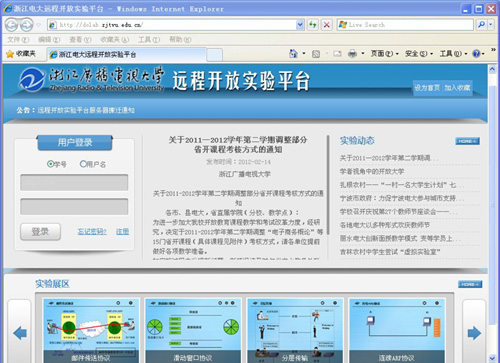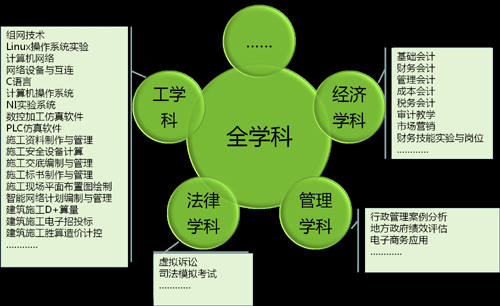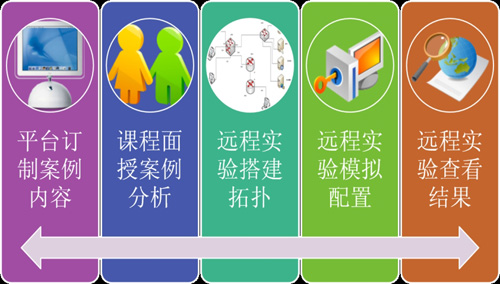
After 6 years of construction, the Zhejiang RTVU Distance Lab began trial operations this spring. Currently it hosts over 200 experimental projects, which provide practical teaching services for over 80 courses.

The Zhejiang RTVU Distance Lab project started in 2005. The project's goal is to integrate information technology and distance education to resolve the conflict between scale and quality, overcome difficulties including imbalanced lab resources and lack of innovation, build an innovative system for modern distance education, and provide an effective, practical environment and teaching methods for cultivating innovative professionals.

Experiments Integrated by Distance Lab Platform

Case Teaching Based on Distance Lab Platform
The three major components of the lab are the local open lab, the lab resource database, and the distance lab platform. The distance lab is the core component, and comprises more than 200 experimental projects in engineering, economics, management and law. It provides practical teaching services for over 80 courses, including demonstration experiments, interactive virtual experiments and remotely controlled experiments.
According to Zhejiang RTVU staff, the distance lab breaks through the barriers of time, space, lab equipment and teaching resources. It combines experimental resources from RTVUs, enterprises and research institutions across the province and integrates functions of self-directed learning, intelligent guidance and teaching management into a single system that is autonomous, interactive, extensible and secure. It optimizes the process of practical teaching, and can satisfy the demand for conducting experiments anytime, anywhere, thus providing an innovative model for practical distance teaching.
In the spring of 2012, Zhejiang RTVU launched distance teaching pilot programmes at 21 local RTVUs for 8 courses including Networking Technology. Based on feedback from the pilot programmes, application of the distance lab has achieved considerable results. It has lowered lab costs, solved the problem of insufficient lab resources at local sites, facilitated application of practical distance teaching, broke through the barriers of time and space, increased students’ autonomous experiments and study, provided an individualized study environment, increased the effectiveness of open education, and provided a better medium for sharing and using resources.
With the development of cloud technology, Zhejiang RTVU plans to construct a distance lab cloud platform based on virtualization, integrated management, automatic scheduling and distributed computing. It will integrate and share all kinds of lab resources for all disciplines, and provide a distance lab study environment that is scientific, autonomous, interactive and extensible. It will accelerate reform and innovation in experimental subjects and models, and enhance learners' practical abilities as well as their analytical skills, problem-solving skills and creativity.
By Zhejiang RTVU